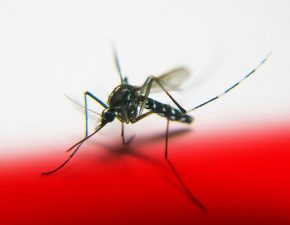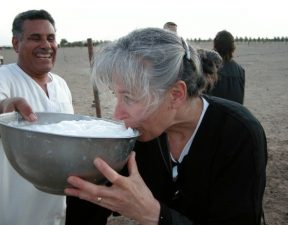 A death trap for corals: Is Abu Dhabi’s Bu Tinah island atoll next in line for dumping?
A death trap for corals: Is Abu Dhabi’s Bu Tinah island atoll next in line for dumping?
We have heard this issue before: corals are being killed from human caused environmental damage. We’ve heard this in a lot of places, especially in the areas like the Persian Gulf; where large scale construction projects in Dubai, Abu Dhabi, and Bahrain are causing serious damage to the Gulf’s very fragile ecological infrastructure. After finding many examples of this problem, especially in regards to Dubai’s mega artificial island project, The World, the nearby United Arab Emirates state of Bahrain is now facing a serious problem to its coral formations due to the dumping of construction waste into the sea. These incidents, reported in the Gulf Daily News, include everything from truck tires, to concrete cinder blocks and other building materials, as well as old fishing nets, are found lying in the Gulf seabed.
The debris is becoming a “death trap” for various forms of marine life that become trapped in it and die. Corals, which depend on a very fragile natural ecosystem, are changing color from their normal blue and orange to shades of grey and are dying; according to Bahrain-based environmentalist Dutchman, Ben van Hoogen:
“This is damage you can’t ever express in amounts of money. It’s robbing the resources of fishermen, the environment, tourism; and this pollution will backfire on the water we take from the sea.”
van Hoogan, who also works for an environmental NGO, the Seal Rehabilitation and Rescue Center in Holland, is now organizing a project to remove parts of this debris by monthly “clean up dives” to try to save what is left of the corals not already damaged beyond repair.
“The coastguard doesn’t have time to do this work, as they need to concentrate on catching and arresting vessels that are doing the actual dumping,” he added.
Persian Gulf marine life includes that found in very unique natural areas such as Abu Dhabi’s Bu Tinah island atolls. It also comprises one of the worlds’ largest populations of dugongs; a large marine mammal that was once mistaken by sailors as being mermaids.
van Hoogen says that before all the current commercialism, Bahrain was an island inhabited by fishermen; many of whom lost their livelihood when the recent construction boom began to destroy the marine environment upon which the fishermen depended upon to make a living. He continued by saying that “you can kill a coral reef in a month, but it takes hundreds of years for it to grow back.”
If ever.
The problem of the destruction of Persian Gulf marine life is not going to be solved as long as construction companies continue to dump their wastes into the waters around Bahrain and other Gulf locations. “Many marine species depend on (coral) reefs for their existence. When the reefs go, so does the marine life,” van Hoogan added.
Photo: Seven Wonders
Read up on threats to Persian Gulf marine life:
Persian Gulf “Mermaids” Face Uncertain Future Due to Man-made Threats
Dubai Artificial “The World” Islands Threatening Coral and Other Marine Life
Rare Sea Turtiles and Other Marine Life Living Happily on Persian Gult Atoll



